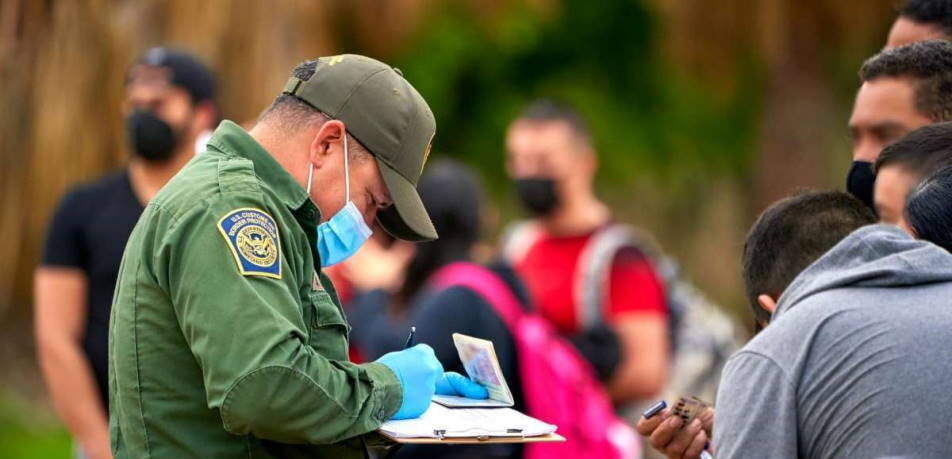SAN LUIS POTOSÍ, Mexico – In a letter sent to U.S. President Joe Biden and Vice President Kamala Harris, 25 governors demanded the disclosure of the location and legal status of all beneficiaries of humanitarian parole, a little over a month after the reinstatement of Advance Travel Authorizations (ATA) for parole beneficiaries, following their suspension due to fraud allegations.
In the letter, they expressed that there is no information regarding the sponsors of the migrants or their location and employment status. “State and local law enforcement are extremely limited in their ability to investigate the possible exploitation of parole beneficiaries and the potential that they are victims of human trafficking.”
“As chief executives of our states, directly responsible for the safety of our citizens and those residing within our borders, we demand full accountability from the Biden-Harris Administration and the DHS regarding the location and legal status of the parole populations in our states,” they wrote.
They also demanded information about the security screening that the Department of Homeland Security (DHS) claims to have conducted on each parole beneficiary: “We request the names and locations of the sponsors who have been granted guardianship. We also ask what system DHS has put in place to monitor both the immigrants and their sponsors, and what assistance DHS is providing to the immigrants.”
The governors pointed to a lack of communication from the administration regarding arrival times, duration of stay, legal status, and the location of these “parole immigrants,” which in their view has created “considerable confusion and alarm among local officials and the general public.”
Without knowledge of the volume of the immigrant population, they said, they cannot assess the impact of these parole beneficiaries “on the already limited public services, including local public schools,” according to the letter signed by the governors of Alabama, Arkansas, Alaska, Florida, Georgia, Idaho, Indiana, Iowa, Louisiana, Mississippi, Missouri, Montana, Nebraska, Nevada, New Hampshire, North Dakota, Oklahoma, South Carolina, South Dakota, Tennessee, Texas, Utah, Virginia, and West Virginia.
By the end of August, nearly 530,000 Cubans, Haitians, Nicaraguans, and Venezuelans had legally arrived and were granted parole under these processes. However, Washington recently announced that those who receive this parole must seek a pathway to regularize their immigration status, as the permit will not be renewed after two years.
After being suspended in early August following the release of an internal report exposing significant levels of fraud, parole authorizations were reinstated with enhanced scrutiny of financial records and the criminal backgrounds of sponsors, an investigation to identify fraudulent sponsor profiles, and more rigorous review mechanisms to detect patterns of serial applications.
The process also added fingerprinting of sponsors in the United States and a background check of potential beneficiaries.
Sigue nuestro canal de WhatsApp. Recibe la información de CubaNet en tu celular a través de Telegram.
